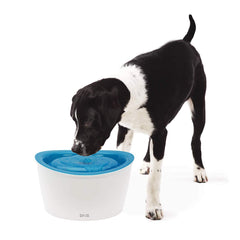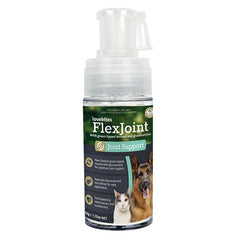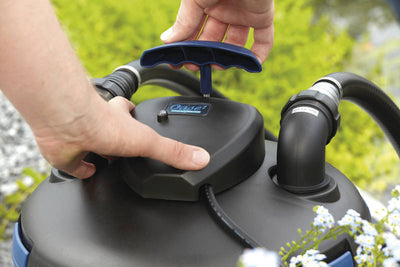
As the temperature drops, it's important to adjust your dog's diet to keep them healthy and happy during the winter months.
From choosing the right type of food to adjusting portion sizes, there are several things you can do to ensure your furry friend gets the nutrition they need.
Cool weather also signals mobility issues for some dogs, you can assist your dogs joint health with the correct diet and supplements to support this.
Increase protein and fat intake.
During the winter months, dogs may need more protein and fat in their diet to maintain their energy levels and stay warm.
Consider adding foods like chicken, beef, and salmon to their meals, as well as healthy fats like coconut oil or fish oil.
Feed your dog a balanced diet that is preservative free and nutritionally complete such as Man's Best Dog Food. The foods in this range of Man's Best Premium Dog Food is an Australian made and grain-free. The Ocean Fish recipe contains omega 3 oils that are beneficial to a dogs skin, heart function and coat. Another excellent choice to feed your dog through winter is PHOENIX Adult Goat & Lamb Grain Free Dog Food. This formula
is formulated with higher protein content, omega-3 and omega-6 oils as well as probiotics -Bacillus Subtilis, Bacillus Licheniformis.
However, it's important to consult with your veterinarian before making any significant changes to your dog's diet. They can help you determine the appropriate amount and type of food to give your dog based on their individual needs.
Add warm, cooked foods to their diet.
During the colder months, adding warm, cooked foods to your dog's diet can help keep them cozy and satisfied. Consider adding cooked vegetables like sweet potatoes or carrots, as well as cooked meats like chicken or beef.
If you feed your dog a raw diet, simply warm slightly and ensure that it includes organs and bones to ensure that all nutrients are covered.
You can also try adding some warm bone broth to their meals for added nutrition and hydration.
Be sure to avoid feeding your dog any foods that are toxic to them, such as onions, human style gravy or chocolate. These are foods that we tend to indulge in more throughout the cooer weather but we should avoid sharing them with our pets.
or chocolate. These are foods that we tend to indulge in more throughout the cooer weather but we should avoid sharing them with our pets.
If you want to share the benefits of warm hearty meals with your dog, consider adding a pet friendly gravy, specifically formulated for dogs! These are conveniently packed in a pantry style bottle and you can heat this gravy up and pour over your dogs kibble, raw food or even add to a lickimat with some other favourite foods!
Incorporate seasonal fruits and vegetables.
Adding seasonal fruits and vegetables to your dog's diet during the winter months can provide them with essential vitamins and nutrients. Some great options include pumpkin, which is high in fiber and can aid in digestion, and apples, which are a good source of vitamin C.
Just be sure to remove any seeds or pits before feeding them to your dog. Additionally, consider adding some leafy greens like kale or spinach for added nutrition.
Provide plenty of fresh water.
It’s important to remember that dogs need access to fresh water at all times, regardless of the season. During the winter months, it’s especially important to ensure that your dog’s water bowl doesn’t freeze over. Consider using a pet drinking fountain and reap the rewards that a drinking fountain will bring, especially when it comes to reducing mess and spills! Learn more about The Advantages of Using a Pet Drinking Fountain Over a Water Bowl Here!
Dehydration can also be a concern during the winter, as dogs may not feel as thirsty in the colder weather. The sound of running water from a drinking fountains assist with encouraging dogs to drink more.
more.
Encourage your dog to drink water by adding some low-sodium chicken or beef broth to their water bowl.
Consider supplements for joint health and immunity.
During the winter months, it’s important to consider adding supplements to your dog’s diet to support their joint health and immunity.
Omega-3 fatty acids, glucosamine, and chondroitin are all great supplements to support joint health and reduce inflammation.
Vitamin C and E, as well as probiotics, can also help boost your dog’s immune system and keep them healthy during the colder
months. Consult with your veterinarian to determine the best supplements for your dog’s specific needs.
How Cold Temperatures Affect Weight
During the winter months, it's important to make sure your furry friend is getting enough food to stay healthy. Research shows that dogs exposed to colder temperatures require two to three times the amount of calories they would need in milder weather. This increase in calories helps them build up fat and insulation, which helps compensate for the calorie loss caused by shivering and other cold-related activities. Without these extra calories, dogs may actually lose weight during the winter months.
Make sure that your dog is well supported and warm at night. Consider using a heated pet bed and some additional blankets to achieve this.
While we may recognise that maintaining a healthy diet is all about a balance, this can be hard to practice for some pet parents. Overfeeding and less activity during the winter can lead to unhealthy weight gain and potential health issues. Be sure to continue to exercise your dog on a daily basis as this will also assist with their joint health during the colder months. If your dog is reluctant to exercise through winter, consider keeping them warm in a dog coat. Our dog coat range covers all activities (including wet weather raincoats), for all breeds of dogs.
So be sure to keep an eye on your pup's diet and adjust accordingly to keep them happy and healthy all season long!
© weknowpets 2023












